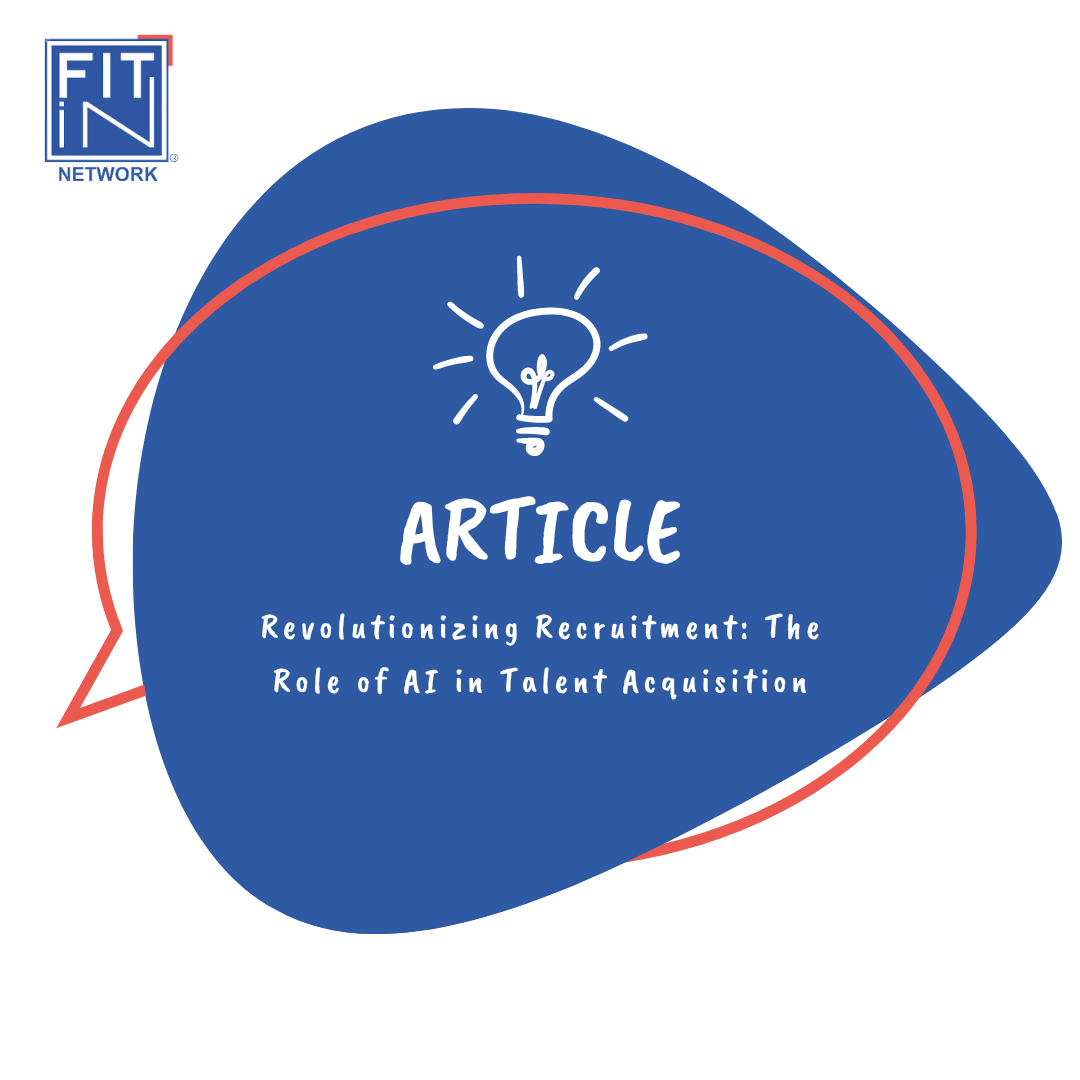
Revolutionizing Recruitment: The Role of AI in Talent Acquisition
In an era defined by technological advancements, the integration of Artificial Intelligence (AI) has transformed various industries, and recruitment is no exception. Traditional methods of talent acquisition are being revolutionized by AI-powered tools and algorithms, offering recruiters unparalleled efficiency, accuracy, and insights. From sourcing candidates to streamlining the selection process, AI is reshaping the recruitment landscape, driving innovation and improving outcomes for both employers and job seekers.
Enhanced Candidate Sourcing
One of the primary challenges recruiters face is sourcing qualified candidates efficiently from a vast pool of applicants. AI-driven tools employ machine learning algorithms to analyze job descriptions, resumes, and online profiles to identify suitable candidates. These tools can scour through thousands of resumes in seconds, saving recruiters countless hours of manual screening.
AI also facilitates passive candidate sourcing by analyzing online behavior and professional networks to identify individuals who may not be actively seeking job opportunities but possess the skills and experience sought by employers. This proactive approach expands the talent pool and enables recruiters to engage with potential candidates who may have otherwise gone unnoticed.
Streamlined Screening and Shortlisting
The screening and shortlisting process can be time-consuming and subjective, often leading to overlooked candidates or biased decision-making. AI-powered applicant tracking systems (ATS) streamline this process by automatically screening resumes based on predefined criteria such as skills, experience, and qualifications. These systems can rank candidates based on their suitability for the role, allowing recruiters to focus their attention on the most promising applicants.
Furthermore, AI algorithms can analyze candidates' responses to pre-employment assessments or video interviews, providing insights into their cognitive abilities, personality traits, and cultural fit. This data-driven approach minimizes unconscious biases in the selection process and ensures that candidates are evaluated based on their merit and potential.
Personalized Candidate Engagement
Effective candidate engagement is essential for attracting top talent and fostering positive employer branding. AI-powered chatbots and virtual assistants enable recruiters to provide personalized communication and support to candidates throughout the recruitment process. These chatbots can respond to inquiries, schedule interviews, and provide feedback, enhancing the candidate experience and reducing the burden on recruiters.
Moreover, AI enables recruiters to leverage predictive analytics to anticipate candidates' preferences and behaviors, allowing for targeted outreach and tailored recruitment strategies. By understanding candidates' motivations and interests, recruiters can tailor their messaging and engagement efforts to effectively attract and retain talent.
Data-Driven Decision Making
AI generates vast amounts of data throughout the recruitment lifecycle, from candidate profiles and application metrics to hiring outcomes and performance indicators. By harnessing this data, recruiters can gain valuable insights into recruitment trends, hiring patterns, and the effectiveness of their strategies.
Predictive analytics models can forecast future hiring needs, identify potential talent gaps, and optimize recruitment workflows for improved efficiency and cost-effectiveness. By analyzing historical data on successful hires and employee performance, AI can also help identify the characteristics and attributes associated with top performers, informing hiring decisions and talent development initiatives.
Ethical Considerations and Challenges
While AI offers numerous benefits to the recruitment process, it also raises ethical considerations and challenges. Concerns related to data privacy, algorithmic bias, and fairness in decision-making require careful attention and mitigation strategies. Recruiters must ensure that AI systems are transparent, accountable, and free from discriminatory biases that could disadvantage certain groups of candidates.
Additionally, there is a need for ongoing training and upskilling to enable recruiters to effectively leverage AI tools and interpret the insights they provide. While AI can augment human decision-making and streamline processes, it is essential to maintain the human touch and empathy in candidate interactions, ensuring a positive recruitment experience for all applicants.
Conclusion
The use of AI in recruiting represents a paradigm shift in talent acquisition, offering unprecedented opportunities to enhance efficiency, accuracy, and fairness in the hiring process. By leveraging AI-powered tools and analytics, recruiters can source, screen, and engage with candidates more effectively, driving better hiring outcomes and organizational success.
However, ethical considerations and challenges must be addressed to ensure that AI is deployed responsibly and ethically. By prioritizing transparency, fairness, and human-centered design, recruiters can harness the full potential of AI while upholding the principles of equity and inclusivity in recruitment practices. As technology continues to evolve, the role of AI in recruiting will undoubtedly expand, shaping the future of talent acquisition and workforce management.
